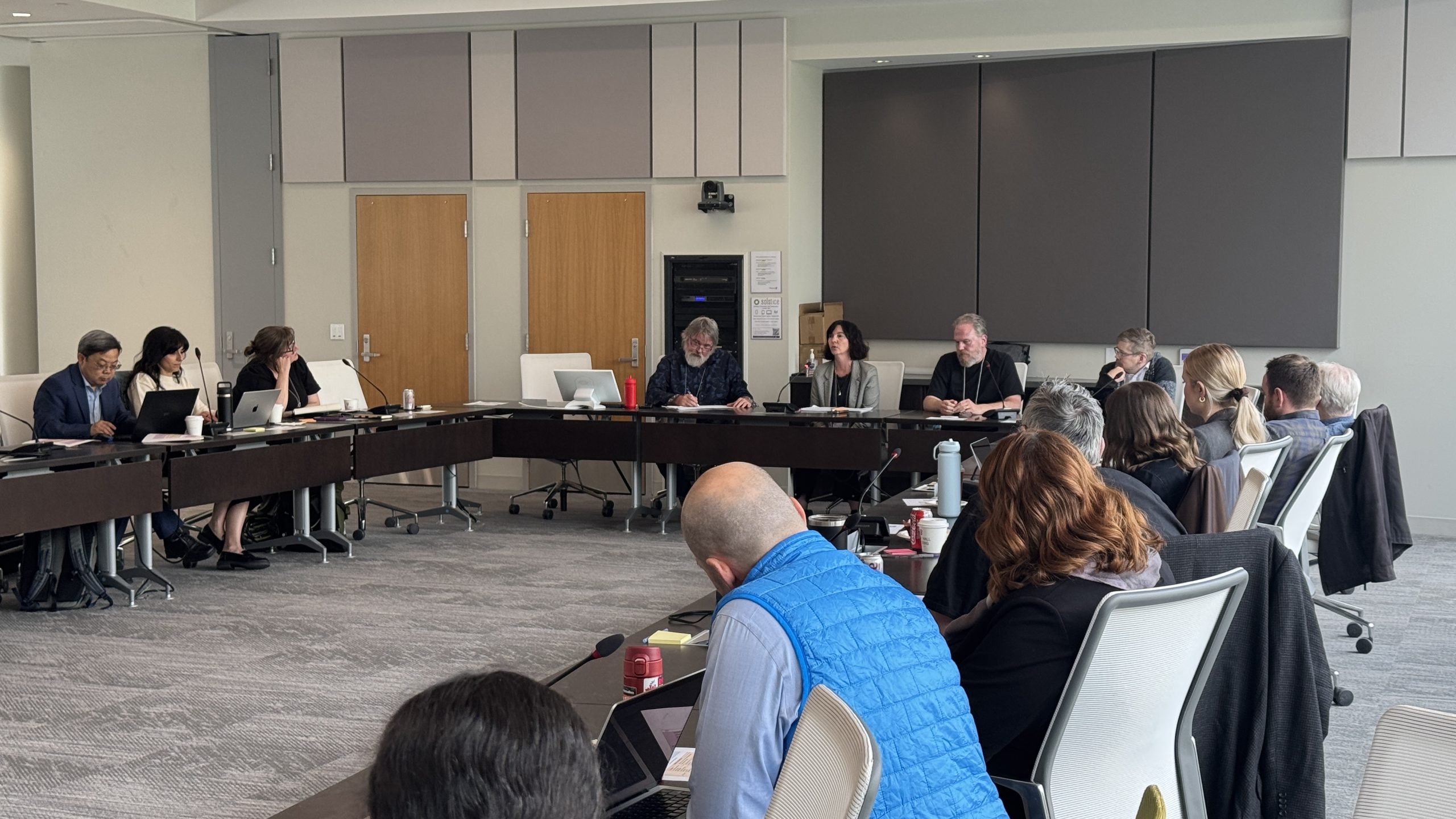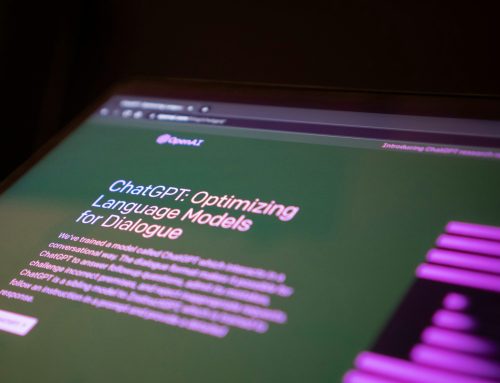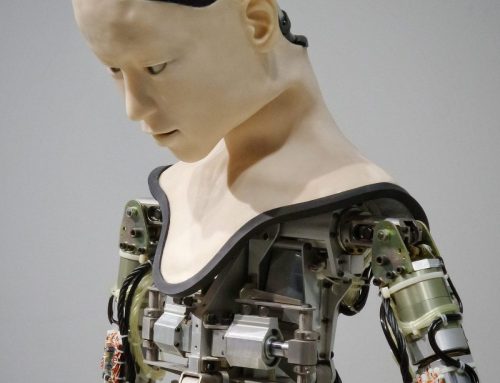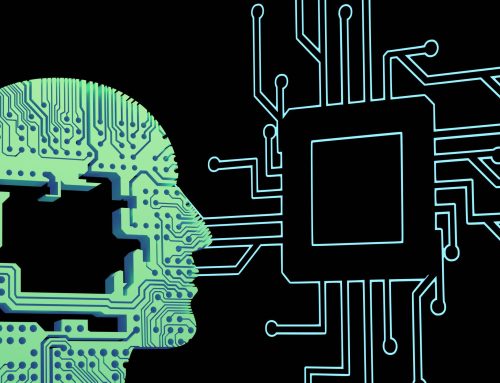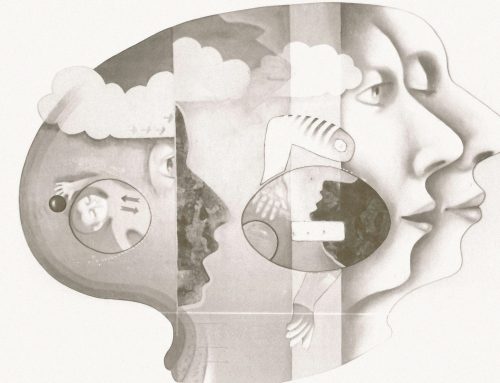With the rapid rise and integration of artificial intelligence (AI) tools such as ChatGPT, Co-Pilot, and Gemini into workplaces, classrooms, and homes, it has become increasingly important to understand the evolving and complex relationship between humans and AI. These technologies are not only reshaping how we work, interact, and communicate, but also raising new questions about ethics, trust, and the future of human interaction. As AI continues to advance with unprecedented capabilities and become more deeply embedded in society, developing an understanding of their impact is essential to navigating the future.
More than 60 researchers from 29 faculties, departments, and research units across Western’s campus as well as from the University of Toronto came together on May 8, 2025, to explore some of these pressing questions surrounding AI and to highlight emerging research in the field. The event, which reached full capacity and closed registrations in advance due to overwhelming interest, also provided a valuable opportunity for researchers to initiate interdisciplinary conversations and collaborations to further the understanding of AI and its implications in diverse settings.
“The work taking place across campus on the topic of human-AI relationships was brought to the Rotman Institute’s attention through its internal Think Tank project on Computational Epistemology. A key part of the Institute’s mission is to act as a convener, and this event is directly aligned with that mission.” – Dr. Dan Lizotte, Director, Rotman Institute of Philosophy.
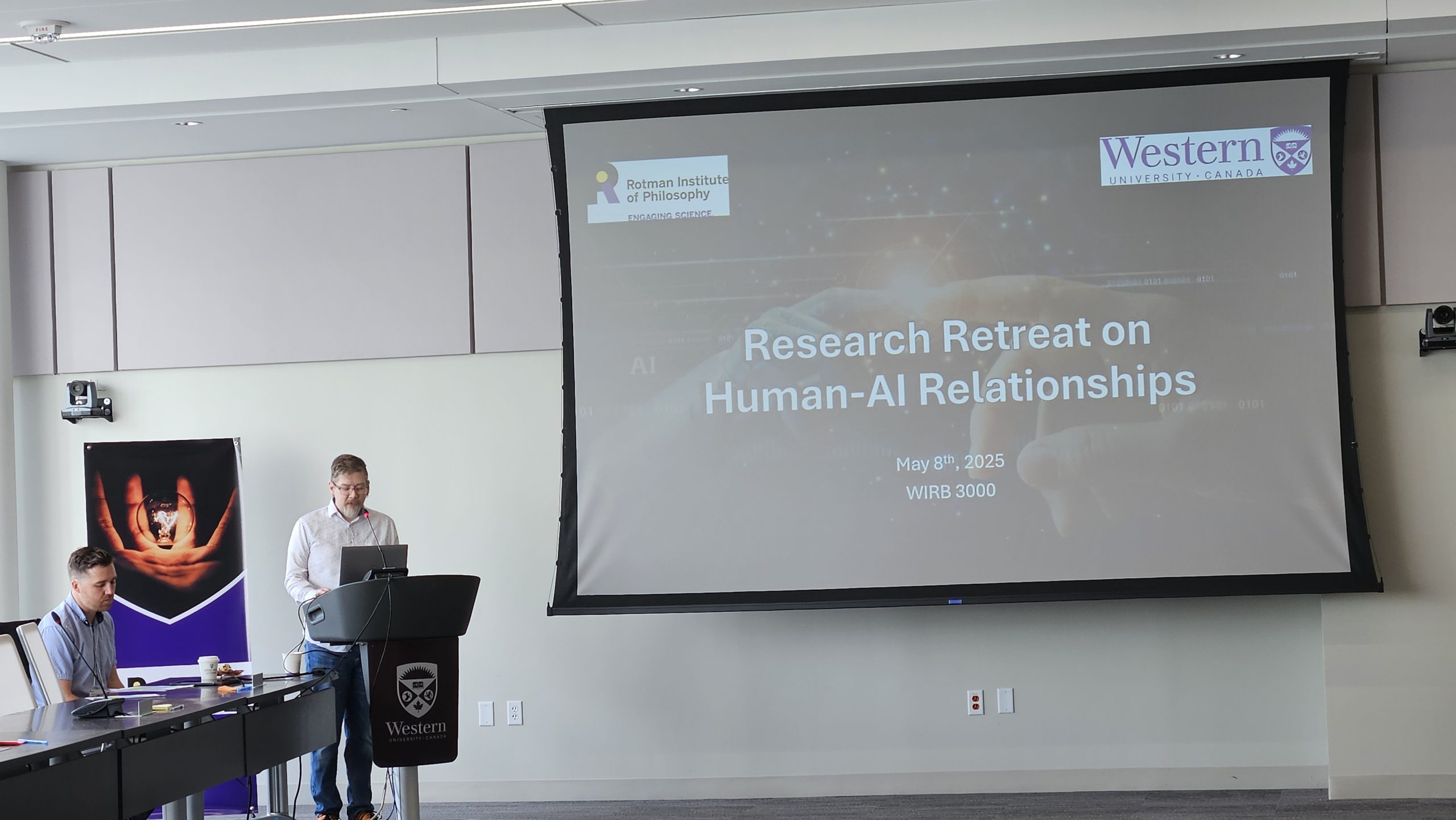
Dr. Dan Lizotte, Director of the Rotman Institute of Philosophy, delivered opening remarks at the Research Retreat.
(Photo: Sucheta Tripathi, Western University)
The event began with opening remarks from the Director of the Rotman Institute of Philosophy, Dr. Dan Lizotte, who highlighted the opportunity for interdisciplinary research across Western on this topic. Attendees then heard presentations from various researchers on the theme of Humanizing AI, which explored the effects and potential harms of designing AI tools to have anthropomorphic (i.e., human-like) features. Following the networking break, several researchers from diverse academic units on campus, such as the Department of Philosophy, Pediatrics, Computer Science, and the Centre for Teaching and Learning, presented their work on the theme Trust in and Dependence on AI. The session examined the extent to which individuals place trust in AI systems, showcased examples of integrating AI into educational contexts to highlight its advantages and disadvantages, and explored how trust in AI can be fostered through a better understanding of the basic principles and processes of its development.
“The history of AI is rich but this (current) stage of AI – this very much needs to be an interdisciplinary approach, so this kind of event brings all these disciplines together is the right approach.” – Carson Johnston, PhD Student, Department of Philosophy.
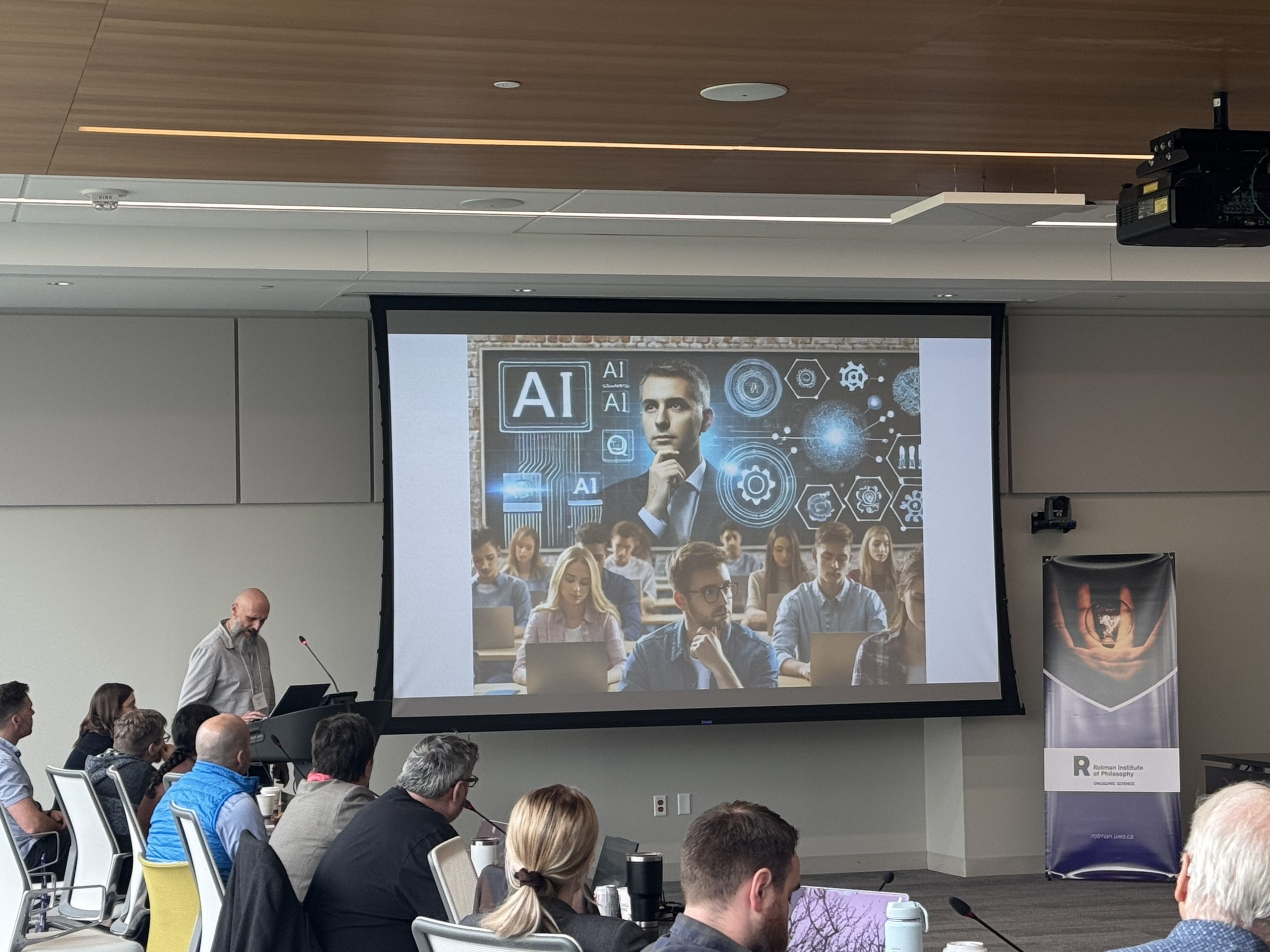 Dr. Albert Malkin from the Faculty of Education discussed university students’ and instructors’ perceptions of Generative AI.
Dr. Albert Malkin from the Faculty of Education discussed university students’ and instructors’ perceptions of Generative AI.
(Photo: Maya Soukup, Western University)
The two sessions were immediately followed by a panel discussion on Humanizing AI, and Trust in and Dependence on AI, providing subject matter experts with an opportunity to share their insights while also engaging the attendees in a boarder conversation. The panel was moderated by Dr. Luke Stark (Faculty of Information and Media Studies) and featured Dr. Jacquelyn Burkell (Faculty of Information and Media Studies), Dr. Treena Orchard (School of Health Studies), and Dr. Atrisha Sarkar (Department of Electrical and Computer Engineering). The panelists were invited to reflect on the potential disruptions posed by the rise of AI, identify the primary beneficiaries of these technologies and discuss the responsibilities to address the consequences of such disruptions and maintenance of AI systems.
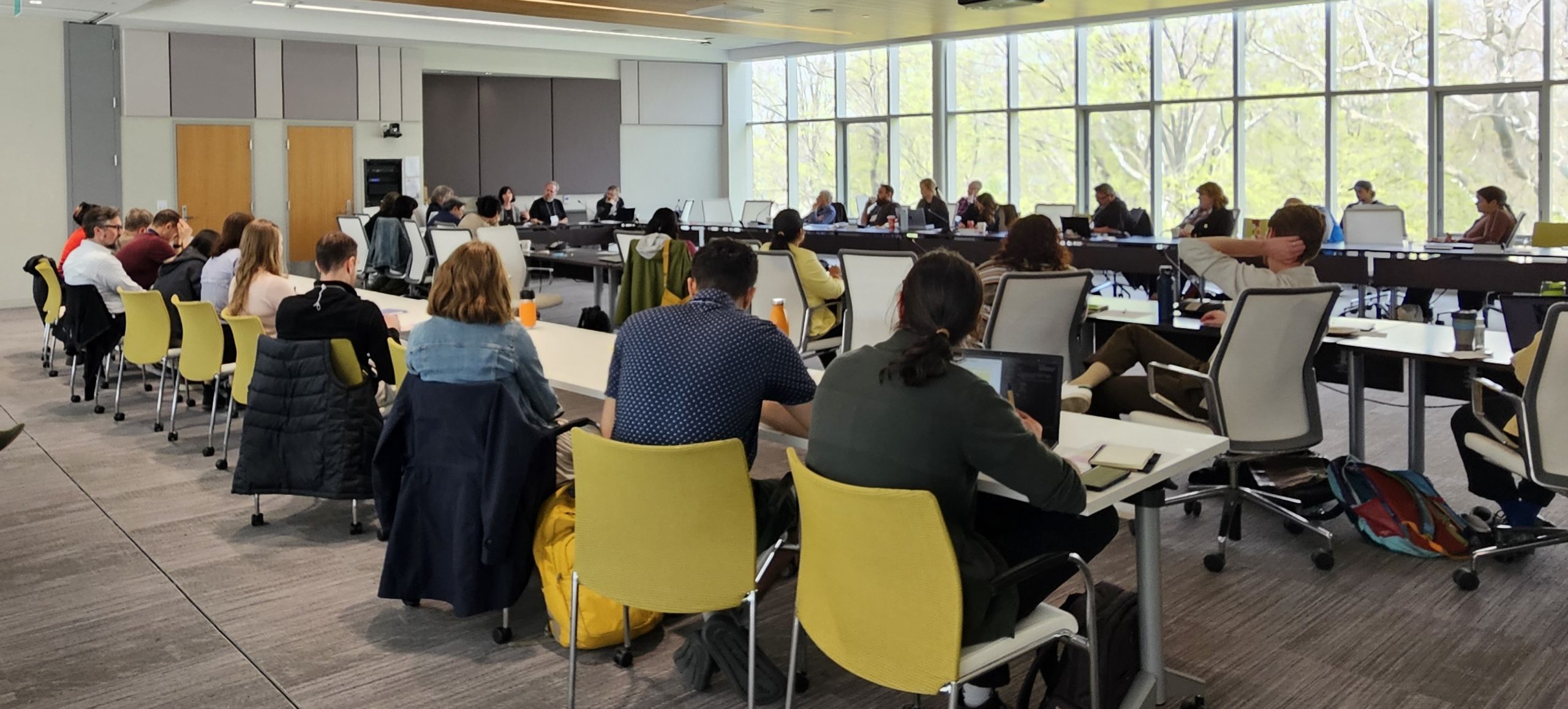
Dr. Dan Lizotte, Director of the Rotman Institute of Philosophy moderated a panel on the topic of ‘Integrating AI’ featuring panelists Dr. Bill Turkel, Dr. Joanna Redden, and Dr. Roy Eagleson. (Photo: Sucheta Tripathi, Western University)
The final topic addressed during the event was Integrating AI. Researchers discussed the impact of AI on education, clinical decision-making, laboratory science, and the role of universities in its integration. The conversation highlighted the use of AI to enhance student learning, automate workflows, and improve research support through effective data and image analysis. The session also explored how AI can be leveraged to deepen our understanding of human-AI interactions.
“I appreciated the conversations. The narratives shared by individuals from engineering were very different from those in social sciences, and both differed significantly from the perspectives of philosophers. All of these conversations need to come together. A key takeaway is that we should all be in the same room, talking to one another more often.” – Dani Dilkes, Education Developer, Centre for Teaching and Learning.
The event concluded with a panel discussion on Integrating AI, moderated by Dr. Dan Lizotte. The panel featured Dr. Bill Turkel (Department of History), Dr. Joanna Redden (Faculty of Information and Media Studies), and Dr. Roy Eagleson (Department of Electrical and Computer Engineering). Panelists offered diverse perspectives on the integration of AI into society, emphasizing the importance of cross-sector collaboration to build coalitions that connect initiatives at both national and international levels. The discussions also addressed critical issues such as who holds and lacks control over these emerging technologies, as well as concerns and motivations that are driving the integration of AI.
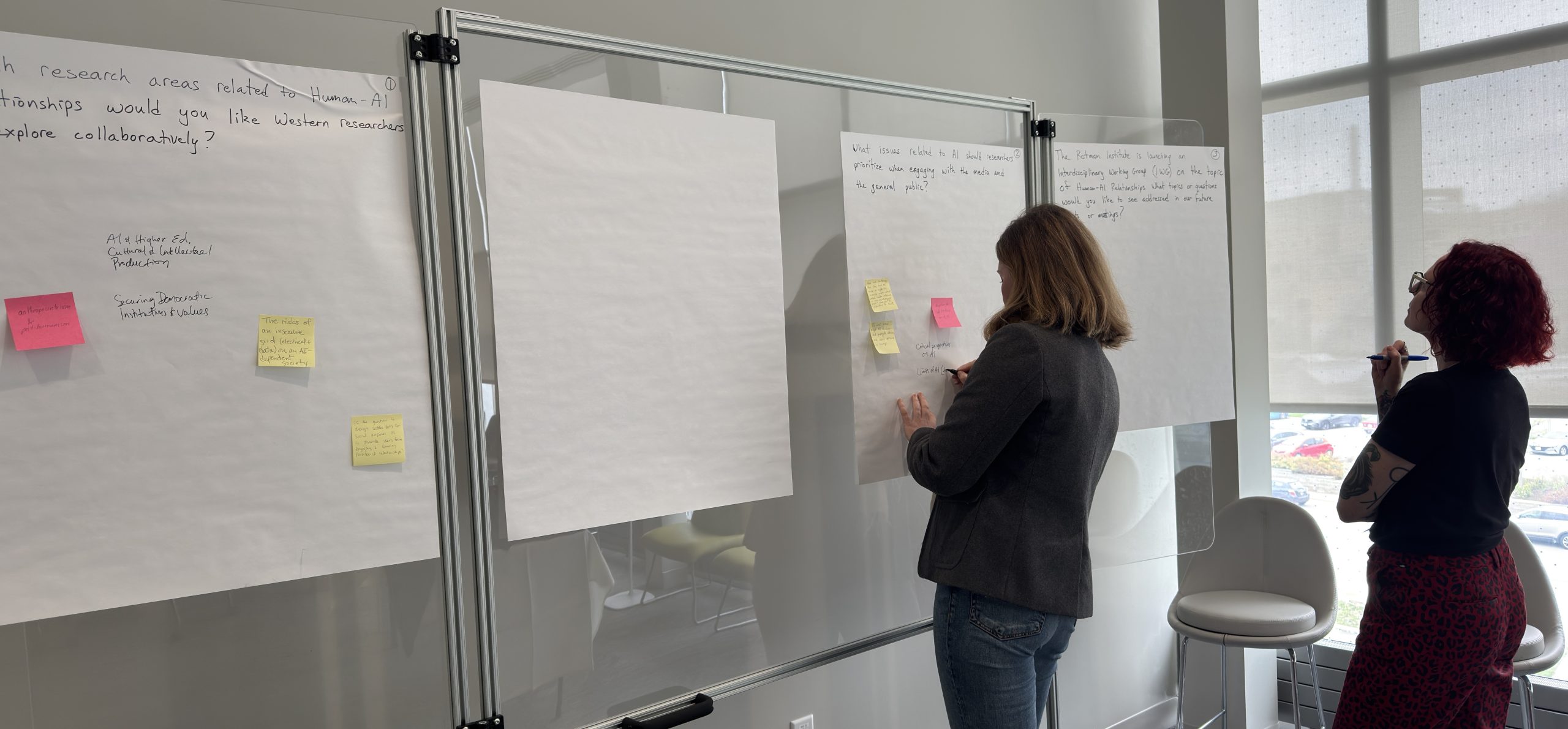
Attendees were invited to share their ideas and reflections on a range of questions through collaborative wall activities during the breaks.
(Photo: Maya Soukup, Western University)
With the goal of fostering collaboration and providing a platform for the exchange of ideas and perspectives, the organizers created a designated area during the breaks where attendees could gather to discuss the topics and questions they hoped to see addressed, and to share their views on which AI-related issues researchers should prioritize when engaging with the public and media. Additionally, attendees were invited to suggest research areas related to human-AI relations that they would like researchers at Western to explore collaboratively.
“My key takeaway was to be impressed by the range of Western Faculty working on various aspects of the question of how humans interact with AI systems; and the most meaningful part of it was meeting those colleagues, trading ideas, and setting the stage for future collaborations.” – Charles Luke Stark, Assistant Professor, Faculty of Information and Media Studies.
To continue advancing this dialogue, the Rotman Institute is establishing an Interdisciplinary Working Group on Human-AI Relationships. This group will provide a forum for those interested in continuing to share their research, collaborate with others engaged in this topic, and build connections within the broader community. If you are interested in joining, please reach to the Institute at rotman.institute@uwo.ca.

